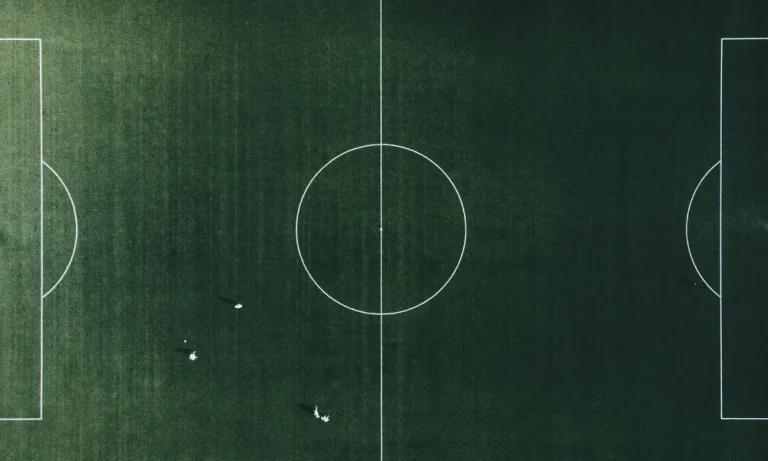What does ‘BYE’ mean in Football?
What Does ‘Bye’ Mean in Football? Have you ever come across the term ‘bye’ while watching a football game and wondered what it actually means? Well, you’re not alone. In the world of football, this term holds a significant place. In this article, we’ll delve into the meaning of ‘bye’ in football and explore its importance in football leagues and tournaments. So, let’s kick off and unravel the mystery behind this intriguing term.
What is a Bye Week?
A bye week in football refers to a designated week during the regular season in which a team does not have a scheduled game. It serves as a break for the team, providing them with an opportunity to rest, recover, and prepare for the upcoming games. This break allows players to heal from injuries, both physical and mental, and recharge their energy for the remaining season.
The purpose of having bye weeks in a football season is multi-fold. Firstly, it helps to ensure fair competition among all teams. Byes are strategically scheduled throughout the season to prevent teams from having a significant advantage or disadvantage due to an uneven number of games played. It allows for a balanced schedule and an equal number of games for every team.
Secondly, bye weeks offer teams a chance to evaluate their performance, identify areas of improvement, and adjust their strategies accordingly. Coaches and players can analyze game footage, review tactics, and work on refining their skills during this break. It allows for self-evaluation and introspection, leading to better performance in the subsequent games.
Why Do Football Teams Have Bye Weeks?
In football, bye weeks are implemented for several important reasons. Firstly, they allow teams to rest and recover from the physically demanding nature of the sport. Football can take a toll on players’ bodies, and bye weeks provide a much-needed break to prevent fatigue and reduce the risk of injuries. This ensures that players are in optimal condition for the remaining games of the season.
Moreover, bye weeks also give teams an opportunity to address any lingering injuries and allow players to heal. It allows time for proper rehabilitation and treatment, ensuring that players can return to the field at full strength. Additionally, the mental aspect of the game is not overlooked during bye weeks. It gives players a chance to recharge mentally, regaining focus and motivation for the upcoming challenges.
The benefits of bye weeks extend beyond individual teams and players. For the league as a whole, bye weeks help maintain a high level of competition throughout the season. By providing rest and recovery periods, teams can maintain their performance levels, resulting in more exciting and competitive games. It also allows for fair scheduling, ensuring that all teams have equal opportunities to showcase their skills without any unfair advantages or disadvantages.
How Are Bye Weeks Determined in Football?
The process of determining bye weeks in football leagues involves careful consideration of various factors. One key factor is the league’s scheduling algorithm, which aims to create a balanced and fair schedule for all teams. The algorithm takes into account factors such as team performance, historical data, and competitive balance to determine the placement of bye weeks.
Additionally, the league considers other logistical aspects when scheduling bye weeks. They take into account factors like travel schedules, stadium availability, and television broadcasting agreements. These considerations ensure that bye weeks are strategically placed to minimize disruptions and maximize the overall efficiency of the season.
Examples of how bye weeks are determined can vary across different football leagues. In some leagues, bye weeks might be pre-determined before the season starts, following a fixed schedule. Other leagues might use a more flexible approach, allowing for adjustments based on unforeseen circumstances or changes in team performance.
Impact of Bye Weeks on Team Performance
The impact of bye weeks on team performance in football is a topic of great interest. Research and statistical analysis have shown that teams often benefit from the rest and recovery provided by bye weeks. After a bye week, players have more time to heal from injuries and regain their physical and mental readiness, resulting in improved performance on the field.
Statistical analysis has consistently shown that teams perform better after a bye week compared to regular game weeks. Players are able to return with renewed energy and focus, leading to enhanced execution of game plans and strategies. This increased performance can be attributed to the physical and mental rejuvenation gained during the bye week.
However, it’s important to note that there can be disadvantages to having a bye week as well. Some argue that the break in momentum caused by the bye week can disrupt a team’s rhythm and cohesion. Additionally, the timing of the bye week can also play a role in its impact. If it occurs too early in the season, the benefits may not be as significant as if it were strategically placed later in the schedule.
Strategies for Teams During Bye Weeks
During bye weeks, football teams have the opportunity to utilize their time effectively to improve their performance. One common strategy is self-evaluation, where teams carefully analyze their strengths and weaknesses. This involves reviewing game footage, assessing player performance, and identifying areas for improvement.
Another key strategy is game planning. Coaches and players use the bye week to develop new strategies, refine existing ones, and study upcoming opponents. This allows teams to make tactical adjustments, implement new plays, and ensure that they are well-prepared for the next game.
There are numerous success stories of teams that have effectively utilized their bye weeks. For example, some teams have used this time to make significant improvements and turn their seasons around. By addressing weaknesses, adjusting strategies, and building team chemistry, these teams have come back stronger and achieved remarkable success.
Bye Weeks in Different Football Leagues
The approach to bye weeks in football can vary across different leagues worldwide. Let’s compare and contrast how bye weeks are handled in various leagues.
In the National Football League (NFL) in the United States, each team typically has one bye week during the regular season. This allows players to rest and recover, while also providing an opportunity for coaches to strategize and make necessary adjustments. The bye week is carefully scheduled to ensure a fair distribution of rest days for all teams.
On the other hand, in some European football leagues, such as the English Premier League, there are no designated bye weeks. Teams play a continuous schedule throughout the season without breaks. This can be physically demanding for players, as they have to maintain their performance levels without the benefit of a dedicated rest period.
It’s worth noting that in certain leagues, such as the Australian Football League (AFL), bye weeks are incorporated into the schedule to accommodate other events or factors. For example, during the AFL finals series, teams that earn a bye week have additional time to prepare for their upcoming matches. This can be advantageous in terms of player recovery and game planning.
What does ‘bye’ mean in football?
In football, ‘bye’ refers to a week off from playing a game. Teams are not scheduled to compete during their bye week.
How are bye weeks determined in football?
Bye weeks in football are typically pre-determined by the league schedule and are evenly distributed among teams throughout the season.
What is the purpose of bye weeks in football?
Bye weeks provide teams with a rest period, allowing players to recover from injuries and fatigue, while also providing time for strategic planning and preparation.
Are there any specific rules regarding bye weeks in football?
The specific rules regarding bye weeks may vary between leagues, but generally, teams are not allowed to schedule any games or official activities during their designated bye week.
How does a bye week affect a team’s schedule and standings?
During a bye week, a team does not play a game, so their schedule is temporarily interrupted. However, the bye week does not impact a team’s standings in the league.
Conclusion
Throughout this article, we’ve explored the meaning and significance of ‘bye’ in football. Byes play a crucial role in football leagues and tournaments, allowing teams to rest, recover, and strategize. These scheduled breaks not only ensure fair competition but also contribute to the overall performance and well-being of teams and players. So, the next time you hear the term ‘bye’ in football, remember its importance and the impact it can have on the game.




